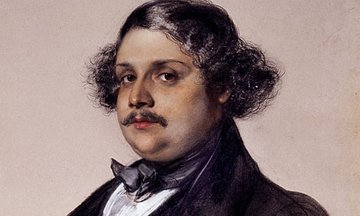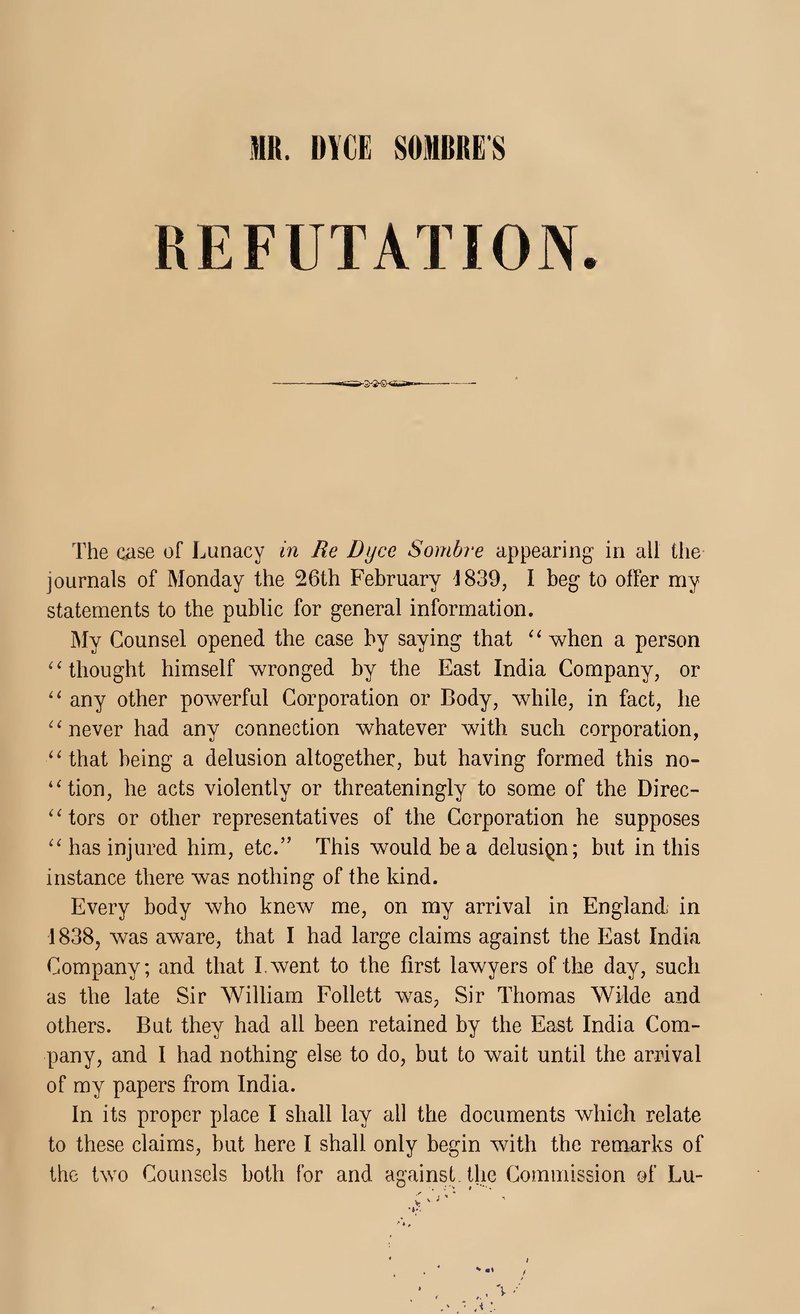
David Ochterlony Dyce Sombre
‐
Radical Liberal MP of European and Indian heritage from the princely state of Sardhana
Place of birth
Date of arrival to Britain
Place of death
London
About
David Dyce Sombre was born in Sardhana, a semi-autonomous princely state in India, in 1808. His father, Colonel George Alexander Dyce, was of Scottish and Indian heritage and his mother, Julianne Reinhard, of French and Indian heritage. He was raised by his maternal great-grandfather's second wife, Begum Sombre, who declared him her heir. When the Begum died in 1836, the East India Company seized Sardhana, removing Dyce Sombre’s rights although he was left with her sizeable personal property, which left him still very wealthy. He raised a series of lawsuits against the East India Company and in 1838 set off for England, arriving on 2 June 1838.
On 26 September 1840 Dyce Sombre married Mary Anne Jervis in London. In 1841 Dyce Sombre stood for election in Sudbury, Suffolk as the Radical Liberal candidate and was elected successfully. However, in April 1842 Parliament ruled that the election had been illegal because of bribery (by Dyce Sombre) and he lost his seat.
In 1843 Sombre was confined for lunacy and his property was seized. In September 1843 Dyce Sombre was allowed to tour England and then fled the country for Paris. He appealed to the French authorities for protection and a board of French doctors declared him of sound mind. Dyce Sombre began legal appeals for his property and against his lunacy judgement. He returned to England on numerous visits between 1844 and 1851 for extensive medical examinations, with the UK courts continuously confirming his lunacy diagnosis. Among the dialogue and rhetoric over his cases, his defenders would explain his character and behaviour due to his ‘Indian blood’ and upbringing, while Dyce Sombre maintained that he was European. He died in London on 1 July 1851 and was buried in Kensal Green cemetery. His heart, however, was later interred with the Begum Sombre at Sardhana, according to the wishes of his will.
Humble Petition of David Ochterlony Dyce Sombre Addressed to the Lords Temporal, Spiritual and Commoners Assembled in Parliament (Paris, 1850)
In Lunacy: In the Matter of David Ochterlony Dyce Sombre, A Person Found to be of Unsound Mind (London: Hansard, 1851)
Mr Dyce Sombre’s Refutation of the Charge of Lunacy Brought against him in the Court of Chancery (Paris, 1849)
Fisher, Michael H., The Inordinately Strange Life of Dyce Sombre: Victorian Anglo-Indian MP and ‘Chancery Lunatic’ (London: Hurst & Company, 2010)
Fisher, Michael H., ‘Sombre, David Ochterlony Dyce (1808–1851)’, Oxford Dictionary of National Biography (Oxford University Press, 2008) [https://doi.org/10.1093/ref:odnb/8344]

Mr. Dyce Sombre's Refutation of the Charge of Lunacy brought against him in the Court of Chancery (Paris, 1849), p. 5
Wellcome Library, Public Domain Creative Commons Mark, https:/creativecommons.org/publicdomain/mark/1.0/
Image credit
Charles Brockey
Public domain, via Wikimedia Commons
